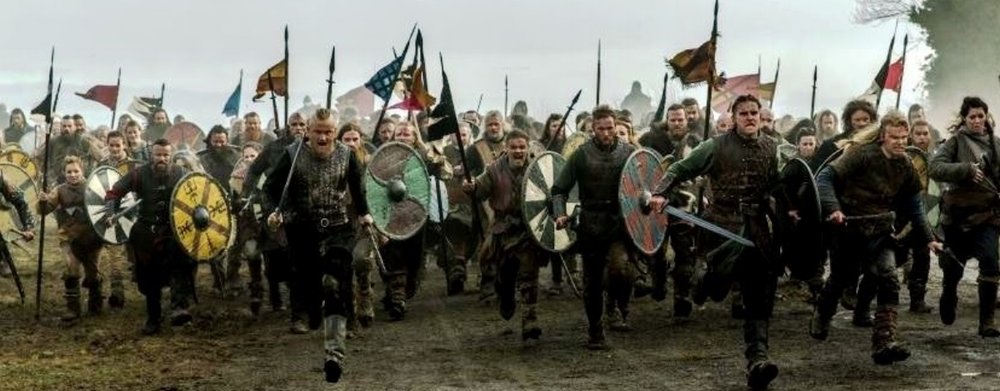Death in Norse Myth: "Song Ended, Melody Lingered"
We can never finish all topics about death in mythology. Because each detail will give us many thoughts to toss and turn every night. In Norse mythology, the death concept revolved around many places, stories, and meanings. Death in Norse myth never meant a full stop to something. It was rather a comma and something new was about to be written down.
In Norse mythology, death is only a part of the life circle. The death of one figure would give birth to another. It opened a new door bringing all beings in the Nine Worlds into a new period of time. But, the new generation never forgot their ancestors. They carried on living with the stories and legacy of the deceased fathers.
The Death of Ymir
Ymir was the first giant to appear in the cosmos. He was born when the lava of Muspelheim touched the ice of Niflheim. Gradually, there were more and more figures. One of the first gods was Bor the father of Odin. Bor married a giantess named Bestla and they had three sons: Odin, Vili, and Ve.
At that time, there were no nine worlds. Everything was in the beginning time. Odin and his brothers started to think of creating the world. But the price of creation was a sacrifice. To create the world they wanted, the brothers killed Ymir the primeval giant.
The body of Ymir the giant was used to fashion the world. Ymir's skull became the sky, flesh into the earth, blood into the ocean, hair into the forest, teeth for mountains, etc. There came the Norse world which was probably Midgard the Earth now.

Ymir's body made the world
Although Ymir died, a new world was forming and it became home for many beings in mythology. Ymir's blood still ran in the ocean and his flesh carried on to hold the world.
The Death of Baldur
Baldur was the most beloved god in Norse mythology. But as the prophecy read, Baldur was destined to die when he grew up. Baldur and Frigg shared the same dream. In their dream, they saw the death of Baldur, vividly and unavoidably.
With the love of a mother, Frigg wandered around Nine Worlds to ask all creatures to swear not to harm Baldur. But somehow, Frigg forgot the small mistletoe. Thinking Baldur would never by harmed, everyone merrily threw things at Baldur only to see them bounce off. Loki who knew the secrets of Frigg made an arrow out of mistletoe and guided Hodr the blind god to throw the arrow directly to the chest of Baldur.

The death of Baldur in Norse mythology
Whoosh! Baldur collapsed on the spot while everyone around was still happily laughing. When everyone realized what happened, it was too late. Baldur was gone. The death of Baldur not only left Odin and Frigg in great pain but it also brought on a nightmare to the whole cosmos. Ragnarok was about to come.
Baldur came and lived in Helheim the land of the deceased. No one could bring him out of Helheim, even Odin asked Hel to release his son and Frigg wandered to ask everyone to mourn for Baldur. But no effort paid off. Baldur had to stay in Helheim.
But thanks to staying Helheim, Baldur was under protection, away from Ragnarok where nearly all of his brothers fell and even his great father sacrificed himself in the battle.
When Ragnarok came to an end, his brother fell down, his father was no longer, his house was no more. The Pantheon collapsed. Baldur who was the only one who could inherit the throne of Odin carried on the legacy of his fathers and his brothers.
Conclusion
The truth is, death is not the end of life. Life carries on, only some lie down and pay the way for the new generation. Usually, it is the natural selective process. Old things perish and the new things will come. But the new things grow up on the foundation of the old.
Ymir died. But his corpse became parts of the cosmos. Parts of Ymir were still there with the universe. He never left universe actually. Baldur's reborn and Odin's death were the same. Baldur was the son of Odin. Baldur was also a part of Odin (and Frigg). Although Odin fell down, a part of his within Baldur still lived on in the new generation. The song of heroes must end, but the melody forever lingers.




